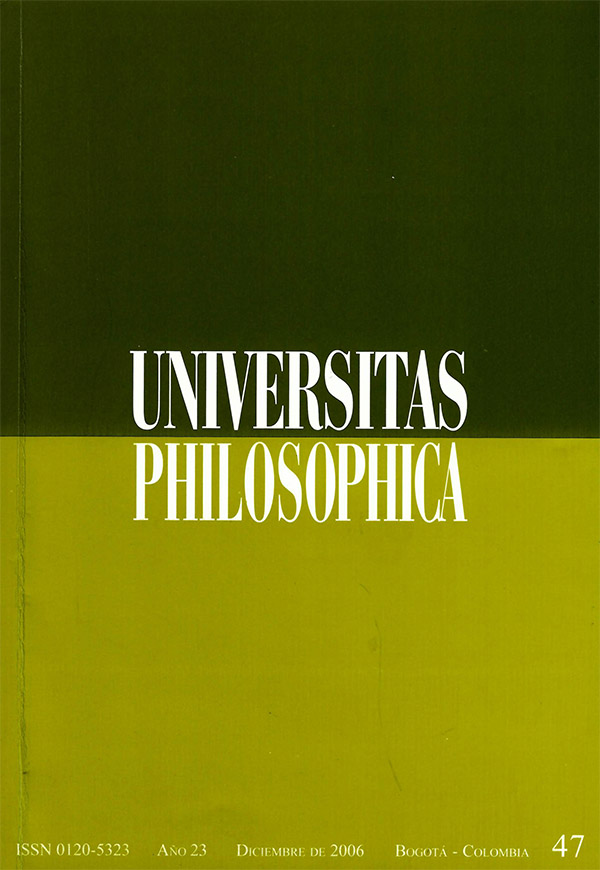Resumo
La globalización se halla actualmente en el centro de la discusión académica y pública. Como hecho, no puede ser desestimada; más bien, la tarea de la filosofía política es ampliar su concepto y refinar las preguntas acerca de ella, para incluir el problema de su legitimidad y racionalización. En este artículo me propongo explorar el uso de la metáfora del comercio por David Hume, como mecanismo privilegiado hacia la civilización y poderoso dispositivo para pensar la correlación entre intercambio y cosmopolitismo. El comercio es una metáfora comunicacional, cuyas asíntotas son la universalidad, la actitud abierta, el reconocimiento recíproco y la hospitalidad hacia el otro. Me centro en los conceptos fundamentales de la filosofía política de Hume -los artificios de la justicia y la cortesía- para reconstruir tanto el proceso mediante el cual se establecen las convenciones -vs. Los contratos-, como aquél que suscita su aprobación moral. Dicha reconstrucción ilustra cómo el comercio, en su espectro más amplio, motiva la configuración de una humanidad civilizada, objetivo de la globalización legítima.Esta revista científica se encuentra registrada bajo la licencia Creative Commons Reconocimiento 4.0 Internacional. Por lo tanto, esta obra se puede reproducir, distribuir y comunicar públicamente en formato digital, siempre que se reconozca el nombre de los autores y a la Pontificia Universidad Javeriana. Se permite citar, adaptar, transformar, autoarchivar, republicar y crear a partir del material, para cualquier finalidad (incluso comercial), siempre que se reconozca adecuadamente la autoría, se proporcione un enlace a la obra original y se indique si se han realizado cambios. La Pontificia Universidad Javeriana no retiene los derechos sobre las obras publicadas y los contenidos son responsabilidad exclusiva de los autores, quienes conservan sus derechos morales, intelectuales, de privacidad y publicidad.
El aval sobre la intervención de la obra (revisión, corrección de estilo, traducción, diagramación) y su posterior divulgación se otorga mediante una licencia de uso y no a través de una cesión de derechos, lo que representa que la revista y la Pontificia Universidad Javeriana se eximen de cualquier responsabilidad que se pueda derivar de una mala práctica ética por parte de los autores. En consecuencia de la protección brindada por la licencia de uso, la revista no se encuentra en la obligación de publicar retractaciones o modificar la información ya publicada, a no ser que la errata surja del proceso de gestión editorial. La publicación de contenidos en esta revista no representa regalías para los contribuyentes.


